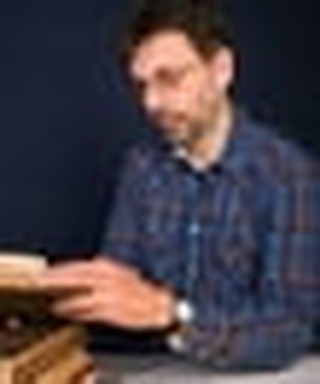If I Only Knew More
Share
LifeWay Research
Published
August 18, 2014

In my second message from the “If Only…” series on Ecclesiastes, I taught on the issue of knowing more.
If Only I Knew More — Ecclesiastes 1:12–18
- “The people in Scripture were real people with real struggles and real questions about God’s will.” Chris Tiegreen
- Have you ever met that guy who just knew more than everyone else in the room? Or wanted to prove it?
- Deep thoughts:
If your shirt is not tucked into your pants, then your pants are tucked into your shirt.
You cannot sneeze and open your eyes at the same time.
Most American cars honk in the key of F
The word bed actually looks like a bed.
Alaska has a longer coastline than all of the other 49 U.S. states put together.
Stewardesses is the longest word that is typed with only the left hand.
The groove located in the middle of the place above your lips is called a “philtrum.”
It takes 8 minutes 17 seconds for light to travel from the sun’s surface to the Earth.
The Nobel Peace Prize is named for Alfred Nobel. Ironically, Nobel invented dynamite in 1866.
Facebook, with its 1 billion users, would be the third-largest country in the world (if it was a country).
- Does knowing any of this make you feel better about life and eternity? No.
1. The empty effort to attain all earthly knowledge
- It’s like being a shepherd to the wind.
- Amassing knowledge is like trying to “shepherd” the wind; herding cats.
- Our pursuit of knowledge becomes a real-life version of Trivial Pursuit. Whoever knows the most in the room feels a sense of self-worth. After all, no one wants to be considered the dumbest in the group.
- We seek to know more because we want:
- Better self-image
- Others to think more of us
- To attain more success in life.
o Yet, we can never know enough to make all three happen all of the time.
- It is a miserable task.
- The frustration of not knowing
- The problems of this life are too hard and we never know enough to solve them (v. 15)
- The more we know, the greater our grief (v. 18). Why?
o Because we understand the world is broken
o Because we recognize that we are fallen
- Ultimately, it is madness and folly to chase after more knowledge.
- Madness = great departure from wisdom, no control
- Folly = act stupidly, absurd, deviation of the mind from what is true, good, right, wise, and prudent
- So, we turn to a better knowledge.
2. The fulfilling pursuit of the knowledge of God
- Trying to solve life’s problems reminds us that they are too hard, and we never understand enough.
- Matthew 5:6 – Those who hunger and thirst for righteousness are blessed, for they will be filled.
- The pursuit of the knowledge of God and the pursuit of God are one and the same. The knowledge of God is not knowledge about God, i.e., a collection of facts and trivia. The knowledge of God comes from intimacy, from interaction, prayer, the word, learning from watching Him work in us. It’s what Paul called “knowing Him” through joining Him in suffering, death and resurrection power (Phil 3).
- 2 Peter 3:18 – But grow in the grace and knowledge of our Lord and Savior Jesus Christ.
- Romans 12:2 – Do not be conformed to this age, but be transformed by the renewing of your mind, so that you may discern what is the good, pleasing, and perfect will of God.
- Only the Word and prayer can guide us to true knowledge that gives us self-worth and leads us to accomplish Kingdom work.
- Though it sounds pedestrian and elementary, there is no substitute for your private devotional life before God.
o Turning to the Word—the revelation of God and His wisdom
o Using prayer as the pathway.
Philip Nation is the adult ministry publishing director for LifeWay Christian Resources. Find out more on his blog.